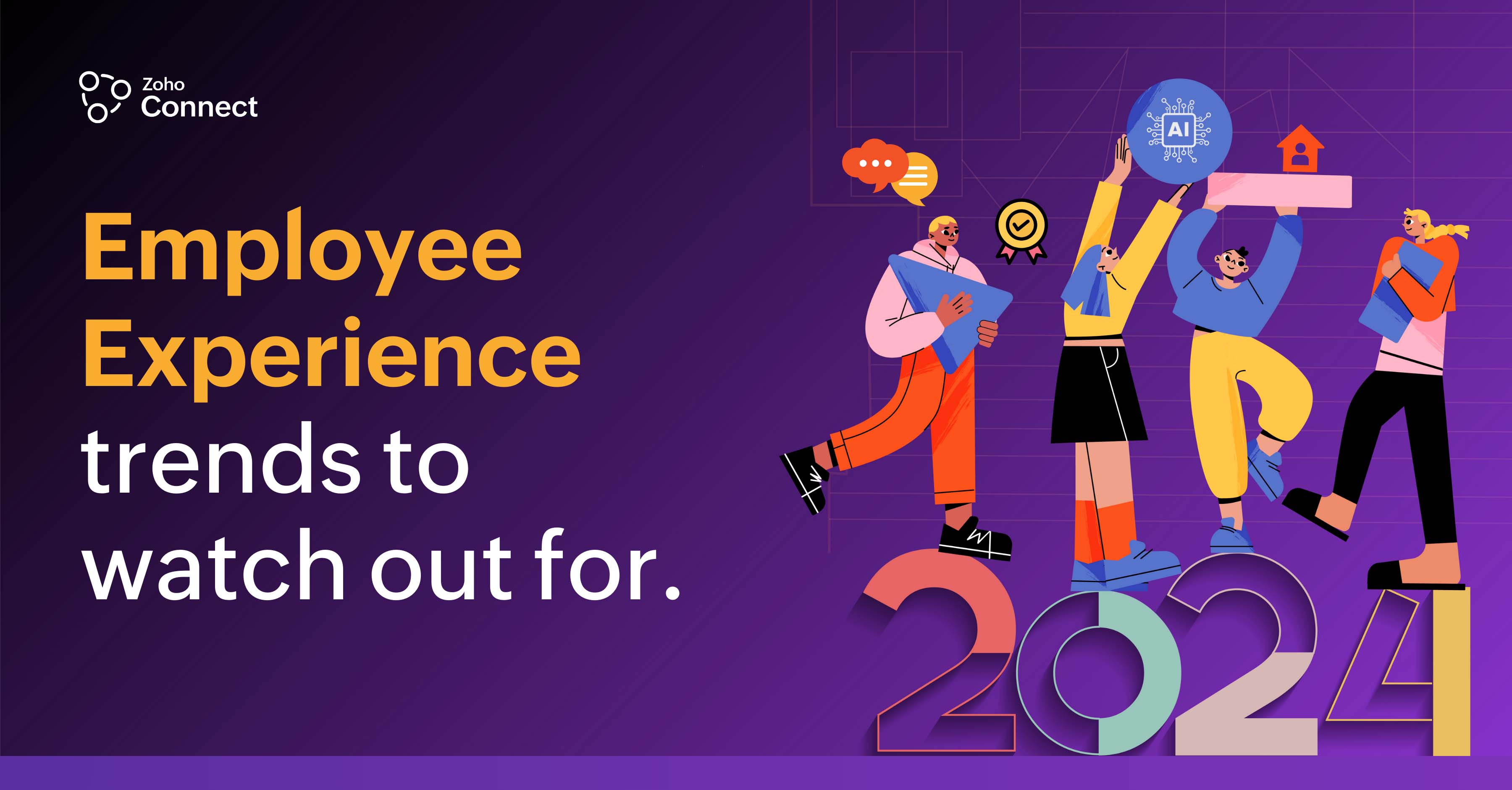- HOME
- Work Culture
- Top employee experience trends for 2024
Top employee experience trends for 2024
- Last Updated : January 18, 2024
- 965 Views
- 4 Min Read

Why is employee experience so relevant now?
Over the years, the way we work has evolved. What matters at workplaces—besides monetary benefits―has been dynamic. According to Glassdoor's research on workplace trends for 2024, the number of Gen Z employees in the workforce is going to be significantly higher.
While millennials still dominate the workforce, the upcoming year will exhibit a shift in work cultures because Gen Z workers care more about transparency, responsive leadership, feeling seen and heard, diversity and inclusion, and a sense of community. Businesses that are playing the long game need to shift their focus to providing better experiences and creating a healthier culture for their employees.
The future of employee experience
According to the Qualtrics report, these are the five main factors that will influence employee experience (EX) in 2023:
Using artificial intelligence (AI) to assist employees with their work.
Being inclusive towards frontline employees.
Going beyond monetary benefits.
Redefining internal communications.
Hybrid is here to stay.
1. Using AI to assist employees with their work.
Whether it's platforms like ChatGPT or anything to do with natural language processing (NLP), AI has evolved with unprecedented speed. According to the Qualtrics report, the more engaged employees are, the more open they are towards accepting AI. That being said, employees also need transparency on the use of AI; they need to be reassured that AI can help improve their work, not manage their work.
What should companies do?
Understand employee sentiment to deliver experiences that benefit both people and the business.
Allow the use of AI to help employees with specific tasks such as writing, understanding data, or as an assistant for internal queries.
Leadership needs to be clear on how any new AI tech will be used in the company. They also need to make sure that any such new tech does not violate ethics or employee privacy.
2. Being inclusive towards frontline employees.
Frontline employees—those working directly with customers, constituents, patients, or students—have been reported as not feeling appreciated by the organization. When frontline employees feel burned out or out of place, it affects the customer experience (CX) that a business provides and, by extension, its profitability.
What can companies do?
Get help from technology such as EX platforms to unify all of your employees within a common space.
Break up silos among teams and enable cross-functional collaboration, particularly with teams that work full-time on the frontline, and particularly teams that focus on CX.
People in leadership positions need to take the time to connect with frontline employees and gain their trust.
HR leaders and management should follow up after surveys, close the gap, and communicate feedback-based changes they've implemented.
3. Going beyond monetary benefits.
With a new generation entering the workforce, it’s important to stay relevant and ensure that practices change with the times. While monetary benefits still reign supreme, culture matters too. Companies need to redefine their employee experience programs to ensure they meet the expectations of new hires.
What can companies do?
Rebuild onboarding to ensure that employees—regardless of their mode of work—are given a platform to get to know each other and forge connections.
New hires need to know if the opportunities that the company provides align with their goals. Open communication between managers, new hires, mentors, and HR holds the key to this.
Provide clear passages for learning, growth, and upskilling. Encourage knowledge sharing between and among teams and enable new hires to generate and share their views, feedback, and ideas.
4. Redefining internal communications.
Employees want companies to listen to them and are willing to open up their work emails and chats if it helps. True listening, of course, goes beyond surveys or any of this data.
What can companies do?
Internal communications need to include an employee listening program.
Use technology to invest in platforms that bring all of your employees to a common space and allow them to voice their ideas, opinions, and feedback.
Respect employee boundaries and be transparent about how employee sentiment is analyzed or any form of passive listening is done within the organization.
5. Hybrid is here to stay.
According to this report, employees who worked on office premises all five days a week have the lowest EX metrics, while those that followed a hybrid model showed higher EX metrics. While there is no one-size-fits-all for this, hybrid definitely helps improve employee experience.
What can companies do?
Leaders and managers need to develop flexible working arrangements for their teams.
Leaders need to be attuned to what employees are most comfortable with, and set outcomes based on the amount of time people need to spend together to deliver them.
Prioritize digital experiences, simplify processes, and improve accessibility to information.
Strengthen internal partnerships particularly among teams that are focused on delivering CX, EX, and IT.
Wrapping up
Ultimately, it's important for companies to humanize the work experience and provide employees with an environment that's conducive to their growth, goals, and interests, all while keeping in mind the overall vision of the company. Luckily, organizations do not have to do this alone. EX platforms like Connect are built for this—helping create people-oriented work cultures, founded on robust internal communications, for everyone to thrive.
What better way to get a head start this year than by prioritizing your employees?


